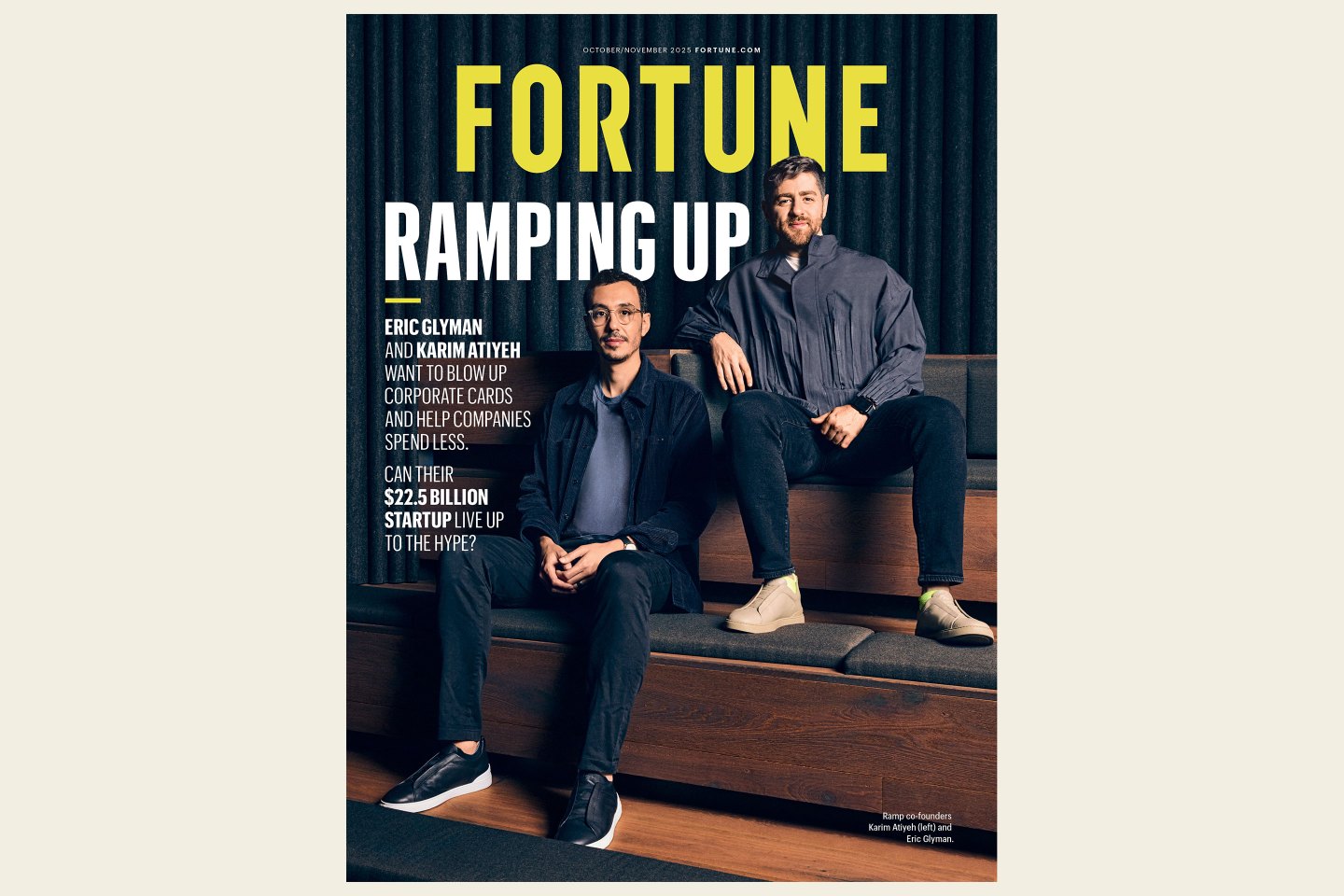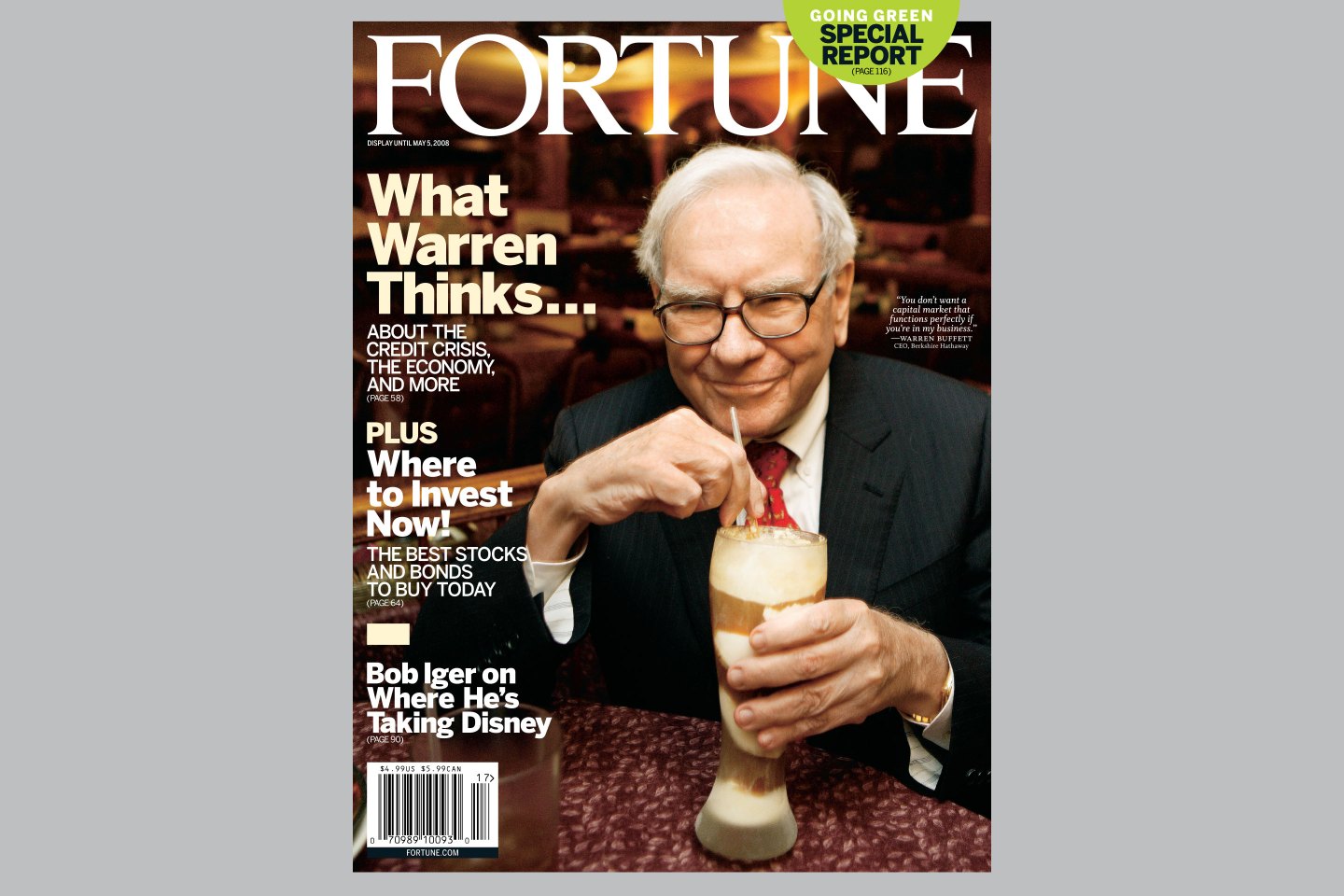In August, OpenAI CEO Sam Altman delivered a stark message at a dinner in San Francisco: We are in an AI bubble, and it’s going to pop. “A lot of people are going to lose a phenomenal amount of money,” Altman told journalists. He likened it to the dotcom crash, but potentially worse.
A few weeks later, Altman’s board chair and fellow AI founder Bret Taylor backed him up: “It is both true that AI will transform the economy [and that] we’re also in a bubble.”
A seemingly endless amount of capital has whipped up the froth for both tech incumbents and startups, which are receiving eye-popping valuations faster than ever. Lots of these companies will implode. But the underlying technology will keep improving regardless of any short-term bubble, and some companies will emerge as the Googles and Amazons of the AI era.
One of the fastest-rising startups today is Ramp, operating in the oh-so-unsexy corporate finance and credit card space. It was founded in 2019 by Karim Atiyeh and Eric Glyman, a duo who had sold their first fintech company to Capital One in an eight-figure deal. With Ramp, they set out to create a unicorn—a startup with a $1 billion valuation—in two years.
No New York–based startup had ever achieved that. Yet sure enough, by the time Ramp hit its second anniversary, it was valued at $1.6 billion. This summer, that number shot up to $22.5 billion. Ramp also announced (exclusively in Fortune) a new milestone: It had surpassed $1 billion in annualized revenue.
Those numbers are startling, but so is that multiple. It’s a testament to both Ramp’s underlying business (it is used by 45,000 companies, though relatively few of the Fortune 500), and to the current AI frenzy, fueled by investors’ fear of missing out.
Lots of companies will implode in any short-term bubble. But a few will emerge as the Googles and Amazons of the AI era.
For more on how the founders have positioned Ramp as an AI-powered startup that’s built to last, read our cover story by Leo Schwartz. And for behind-the-scenes insights from Glyman, subscribe to my podcast, Fortune 500: Titans and Disruptors of Industry, which features Ramp on one of the most recent episodes. (Find me on Apple, Spotify, or YouTube.)
While the money is flowing for startups, the need for incumbents to capitalize on AI has become existential. Intel, the once-dominant chipmaker, is in a fight for its life that requires it to aggressively move into leading-edge chips, including those optimized for AI, while drumming up the funding to float that expensive transition. The Trump administration recently bought an unprecedented $8.9 billion stake in Intel, and Nvidia has committed $5 billion to get the business off the ground. Fortune’s Geoff Colvin and Lila MacLellan spoke to current and former Intel executives and employees to get their take on what could be the company’s last stand.
Elsewhere on our pages you’ll meet the 36-year-old wunderkind who’s been tapped to turn around Red Lobster; discover 50 companies that are changing the world by innovating and being civic-minded; and learn how McKinsey is reskilling its 40,000 employees to help them advise—and lead—the next generation of Fortune 500 companies.
Thanks, as always, for reading.
This article appears in the October/November 2025 issue of Fortune with the headline “Making sense of a ‘phenomenal’ AI bubble.”













